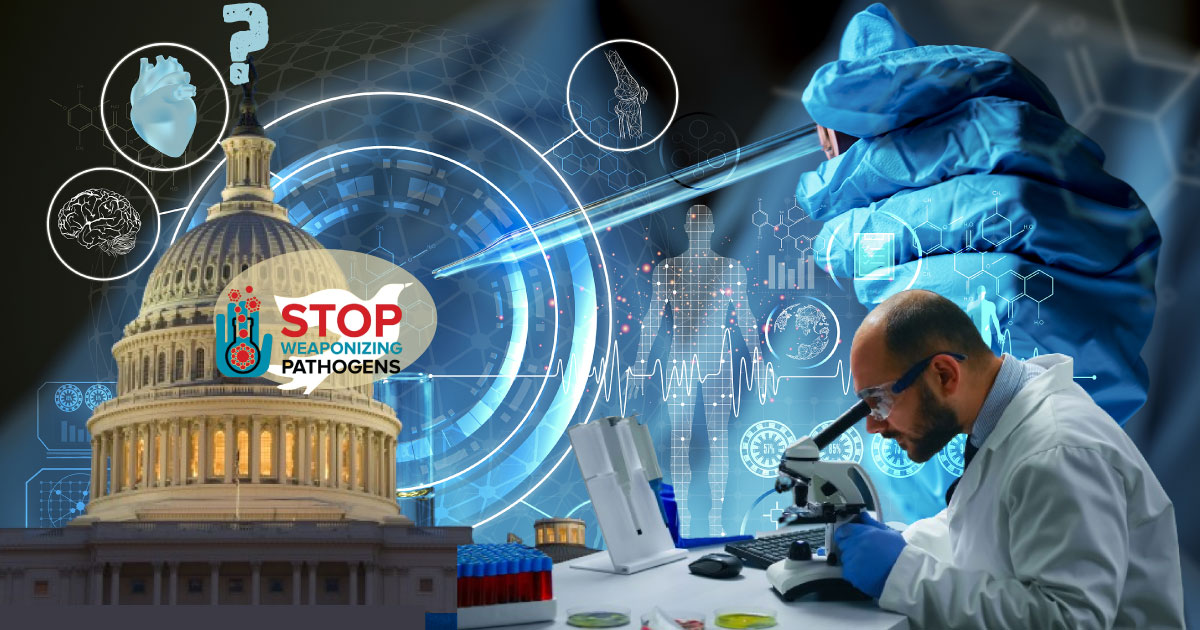
STOP WEAPONIZING PATHOGENS
Will Your Congressperson Ban “Gain-of-Function” Bioweapons Research?
Will Your Congressperson Ban “Gain-of-Function” Bioweapons Research?
Back in November 2023, Congress took the first step to stopping the next pandemic.
“To protect against man-made pandemics” the U.S. House of Representatives included language in one of its appropriations bills that “prohibits any funding from going to EcoHealth Alliance, the Wuhan Institute of Virology, or any lab located in Russia or China. The bill also prohibits funding from being used for any gain-of-function research, which was being used on bat coronavirus prior to the COVID pandemic.”
Congress recessed for the holidays before it finished its work. Tell your Congressperson to take action before the 2024 elections!
Make sure you get a response as to where they stand. If you don’t hear back within a week, call them at (202) 224-3121.
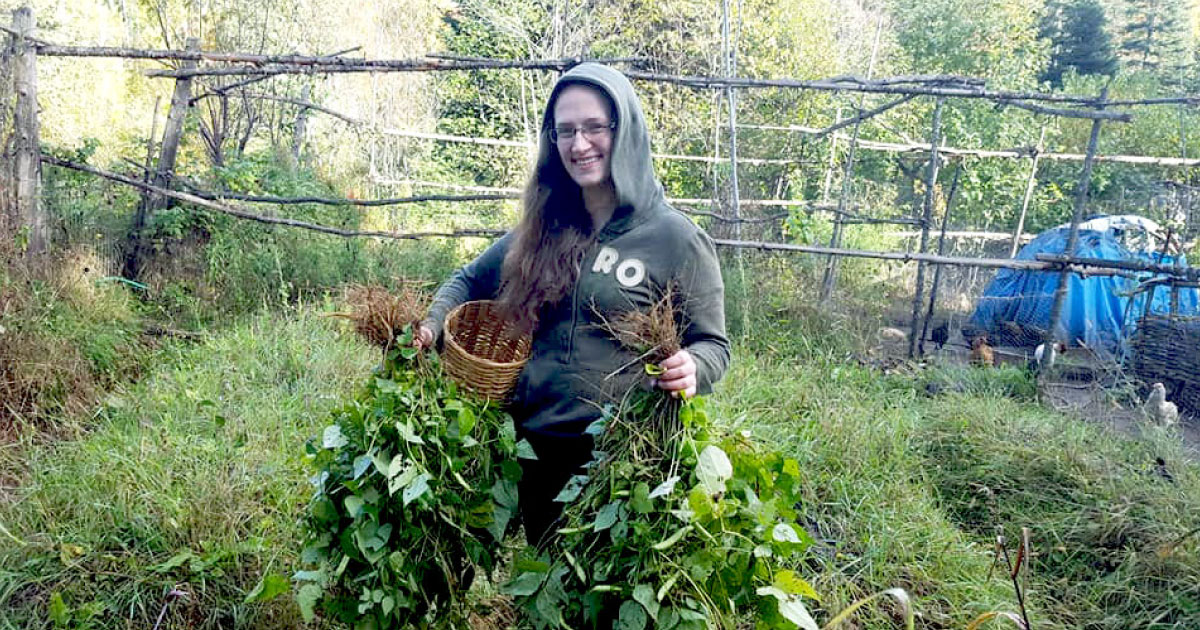
REGENERATIVE AGRICULTURE
Women Farmers Quantitatively Linked To Better Community Well-Being
By Eurasia Review:
“Having more women in agriculture is associated with greater community well-being, according to researchers at Penn State and the University of Wisconsin-Madison. Their work is the first to quantitatively assess this link, and their findings suggest that women farmers approach their operations in ways that positively impact their communities.
The study, published in Applied Economics Perspectives and Policy, revealed that U.S. counties with a higher share of farms owned or operated by women have higher rates of nonfarm entrepreneurship, longer life expectancies and lower poverty rates.
“We know from previous qualitative research that women farmers tend to enter into farming for different reasons than men and often make decisions with the greater good in mind,” said Claudia Schmidt, assistant professor of marketing and local/regional food systems at Penn State and the study’s lead author. “For example, they strive to meet a social need in their community or they prioritize environmental stewardship over profits. Our study is the first to use quantitative research methods to explore whether this concept of ‘civic agriculture’ actually translates to improved community well-being in places with higher shares of women farmers.”
Read more about the role and impact of women farmers in the United States

COMING CLEAN
Companies Fight To Keep Consumers in the Dark About Chemicals in Cleaners
By Iris Myers (EWG):
“During the cold winter months you may spend more time inside than out. And you may do more cleaning, especially because it’s also the flu and Covid season.
But before you reach for that spray cleaner, you should know that ingredients in many household cleaning products don’t just kill germs, they may also harm your health.
And a new bill in Congress may mean that simply checking product labels and company websites soon won’t be enough to avoid toxic ingredients.
In October 2023, a bill was introduced in Congress on behalf of leading household cleaning product manufacturers – including Reckitt, the manufacturer of Lysol – that would deny Americans the right to know what the toxic chemicals are in their cleaning products.
The industry bill was introduced by Rep. Larry Buschon (R-Ind.). Dubbed the Deny Americans the Right to Know Act – or DARK Act – by consumer advocates, if passed, the law would create an endless regulatory process that would produce a far weaker chemical disclosure system.”
Read more about the DARK act and how you can protect yourself and family

REGENERATIVE AGRICULTURE
Online Certificate Course on Regenerative Agriculture
Become a certified regenerative agriculture practitioner! South Seas University (SSU) and Regeneration International (RI) are offering 5-week online courses in 2024 and beyond.
Join Regeneration International director Dr. Andre Leu in a course starting February 26. These 5 sessions will be 90 minutes each; Maximizing Photosynthesis, Ground Covers and Weed Management, Soil health and Nutrition, Using Functional Biodiversity to Manage Pests and Diseases, Making It Happen – Applying the knowledge.
Dr. André Leu, is a practising farmer, the International Director of Regeneration International, and the Author of Growing Life (2021), Poisoning Our Children (2018), and The Myths of Safe Pesticides (2014). His work appears in Television, magazines, universities, institutions, NGOs, and worldwide workshops, including the United Nations. André and his wife, Julia, own and manage an organic tropical fruit farm in Daintree, Australia.
After completion, a Certificate will be awarded to participants. A reduced price will be available to anyone on a limited income wanting to take this course.
To apply, submit your name, position or profession, email, mailing address, telephone number, portrait photo, and why you want to take this course to admin@SouthSeasUniversity.com.
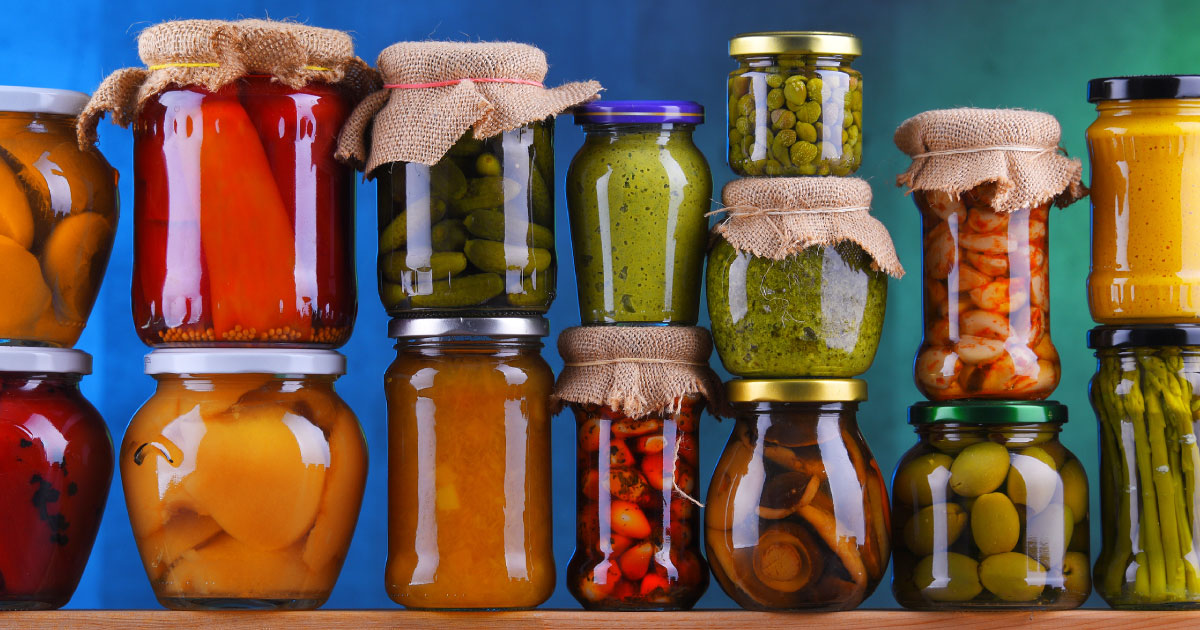
FOOD PRESERVATION
Salt, Microbes, Acid and Heat in Food Preservation
By American Society for Microbiology:
“In an era of grocery stores and home refrigerators, it is easy to lose sight of the fact that, for most of history, people have been bound by the seasonality of food. This reality has long presented humanity with a conundrum: how to keep eating after the harvest is over?
Methods of food preservation to address lean seasons throughout history have taken fascinating twists according to region and culture. There are the much beloved stinky cheeses of France, the tart sauerkraut of Germany (which actually originated in China), miso paste in Japan, salted fish in Iceland and the cured meats of multiple cultures stretching into ancient history, to name just a few. Some methods of preservation have sought to minimize microbe involvement by making foods hostile to microbial settlement, while others have embraced microbial life to make many of the specialties we know and love today.
One lasting benefit of food preservation is minimizing waste and keeping food local. While many people no longer have to eat locally with the seasons, choosing to do so can reduce the fossil fuels that would have been used to transport unseasonal produce. This can have a positive impact on the carbon footprint of our diet. Limiting food waste also mitigates the waste of the water and other resources used to grow that food. Not to mention, anyone who has enjoyed a glut of fresh garden tomatoes knows that homegrown food is often more delicious than food that was picked before it was ripe to travel around the world.”

MILLIONS AGAINST MONSANTO
Why Is Bayer Taking Glyphosate off the U.S Consumer Market?
Stacy Malkan, U.S. Right to Know:
“Monsanto owner Bayer AG said it would remove glyphosate-based herbicides from the U.S. consumer market by 2023 due to litigation. More than 100,000 people are suing Bayer alleging they developed non-Hodgkin lymphoma from exposure to the company’s glyphosate herbicides, such as Roundup. We are posting documents released via discovery on our Monsanto Papers page.
Glyphosate will still be used in large quantities in agriculture in the U.S. Reformulated versions of Roundup brand herbicides without glyphosate will also remain on the market, but may contain other chemicals of concern. For example, one of the active ingredients in “Roundup for Lawns” is dicamba, a chemical that can damage non-target plants and crops.
What health problems are linked to glyphosate exposure? Cancer
July 2023 study in Chemosphere: Researchers from the University of California, Berkeley, conducted a systematic review of mechanistic studies on glyphosate and glyphosate-based formulations to evaluate them for the 10 key characteristics of cancer hazard identification. Data analysis revealed “strong evidence” for five of the key characteristics of carcinogenicity. An in-depth analyses of genotoxicity and endocrine disruption revealed “strong and consistent positive findings.” The researchers wrote, “Our findings strengthen the mechanistic evidence that glyphosate is a probable human carcinogen and provide biological plausibility for previously reported cancer associations in humans, such as non-Hodgkin lymphoma.”
Read more in this comprehensive article about Glyphosate: Cancer and other health concerns
Make Your State the First to Ban Monsanto’s Roundup Weedkiller
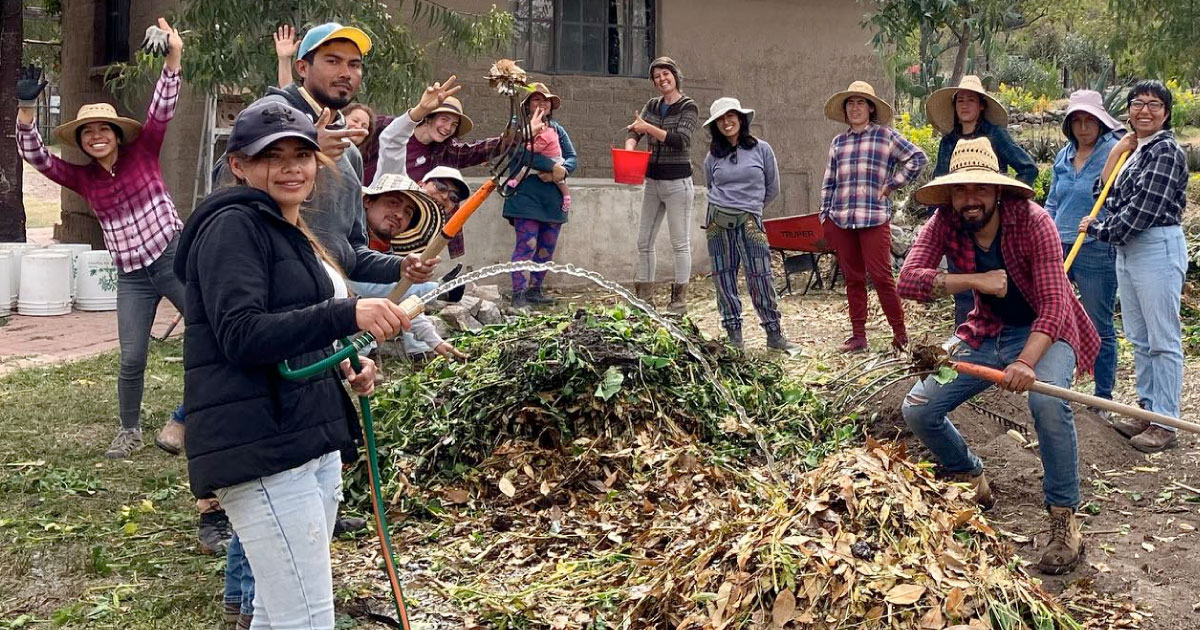
SUPPORT THE OCA & RI
The Way Forward
It is easy to become discouraged about all these environmental toxins. A common reaction to this new information is, “What does this have to do with me? We are all exposed anyway. Can I even do anything about it?”
It’s easy to feel like we are helpless cogs in a giant machine played like puppets by an uncaring system. It’s easy to feel like we can’t do anything about it and that we should accept the state of affairs. Unfortunately, it is also easy to take the mentality of “let the experts fix it.”
However, the truth is that we can do something about it. It doesn’t take an MD to understand the following simple principle. Functional medicine specialist Dr. Andrew Weil said, “The best way to detoxify is to stop putting toxic things into the body and depend upon its own mechanisms.”
We firmly believe that a healthy world is within our reach. As close as the knives and forks in our hands, the soil under our feet, our computers and phones to communicate and mobilize, our wallets and purchasing power, and our local public squares and voting booths. We have the power to wage a peaceful, non-violent, but world changing revolution that is regenerative, healthy, equitable, and organic. But we must become more than spectators. We must all participate in revitalizing our culture, our politics, our food and our health. To defeat the powerful forces of greed and evil, we must join together, raise our voices, and keep our eyes on the prize: an organic and regenerative future of peace, freedom, and justice.
For those of you who can afford to do so, please give us a donation using the links below.
Make a tax-deductible donation to Organic Consumers Association, a 501(c)(3) nonprofit
Make a tax-deductible donation to Regeneration International, our international sister organization

COVID-19
US Scientists Proposed to Engineer Viruses With Features of SARS-CoV-2 in Wuhan
By Emily Kopp, U.S. Right to Know:
“New documents describe experiments that could have generated the virus’ rare properties. They detail the scientists’ interest in working with viruses precisely like SARS-CoV-2. (Photo credit: Unspash)
American scientists planned to work with the Wuhan Institute of Virology to engineer novel coronaviruses with the features of SARS-CoV-2 the year before the virus emerged from that city, according to documents obtained by U.S. Right to Know.
While rare in nature, these features were central to the esoteric research interests of the scientists working with the Wuhan lab, those documents show.
Scientists divided over the so-called “lab leak” and natural origin hypotheses have for years pored over the arcane language of a U.S.-China research proposal called “DEFUSE” describing coronavirus engineering experiments.
The DEFUSE grant proposal was led by EcoHealth Alliance President Peter Daszak.
Now, drafts and notes uncovered through the Freedom of Information Act reveal fresh details about the intended research.”
Learn more: US Scientists Proposed To Make Viruses With Unique Features of SARS-CoV-2 in Wuhan
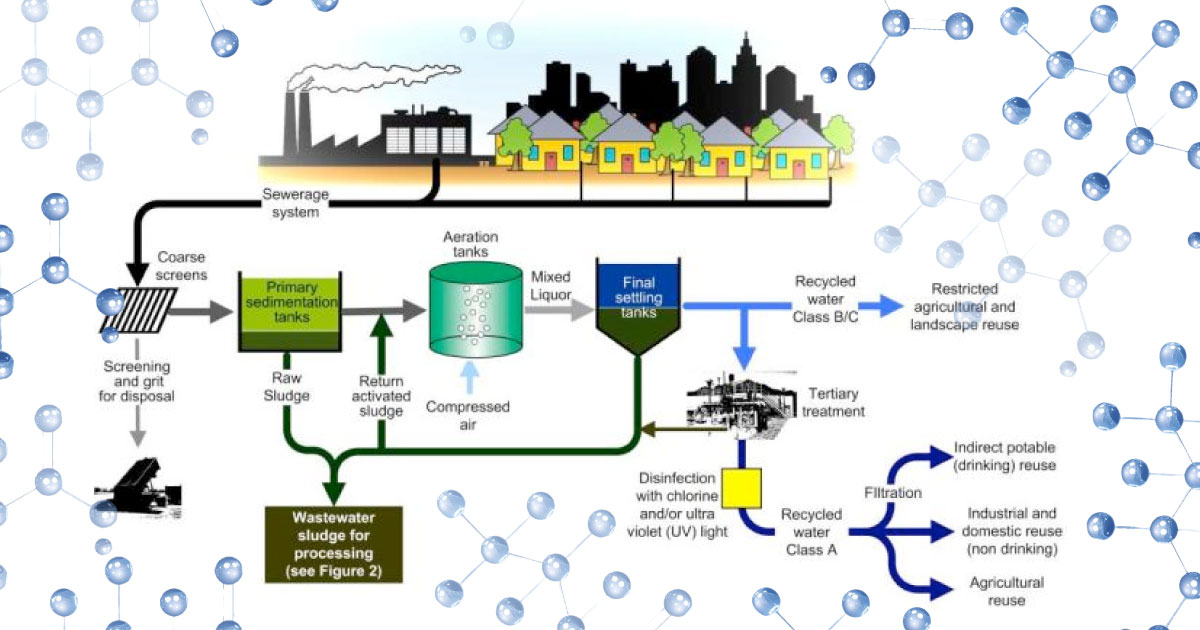
SEWAGE SLUDGE
Microplastics from BioSolids (Marketed as Natural Fertilizer) Can Carry Dangerous Pollutants Into the Air
By Eurasia Review:
“According to estimates by the U.S. Environmental Protection Agency, over 2 million dry metric tons of biosolids — roughly half of the total amount collected by wastewater treatment plants — are applied to land each year. As a result, microplastics in these biosolids have the chance to reenter the environment. Because the plastics could carry other pollutants from the wastewater they originated from, they can be potentially dangerous when inhaled. So, Sanjay Mohanty and colleagues wanted to investigate how wind could pick up and transport microplastic particles from biosolid-treated agricultural fields.
The team analyzed airborne microplastics in wind-blown sediments that were gathered during wind-tunnel experiments on two plots of biosolid-treated land in rural Washington state. The researchers discovered that these wind-blown sediments contained higher concentrations of microplastics than either the biosolids or the source soil itself. This enrichment effect is caused by the plastic particles being less dense than soil minerals, such as quartz, and less “sticky” — they’re not trapped as easily by moisture as the soil minerals are. As a result, microplastics can be picked up by a breeze more easily than soil minerals, and winds that might not be strong enough to kick up dust could still be introducing microplastics into the air.”
TAKE ACTION: Demand Your Right to Know About Toxic Sewage Sludge!

ENVIRONMENTAL POLLUTANTS
Simple Kitchen Swaps to Reduce Your Exposure to Microplastics
By Laurel Leicht, HealthCentral:
“No matter if you’re tossing your empty milk jugs and detergent bottles in the recycling bin, plastics are accumulating around the world—and become especially unavoidable when they break down into miniscule bits called microplastics. It boils down to the fact that microplastics are made up of a cocktail of chemicals that, when absorbed into the body, can disrupt its inner workings. These chemicals are known as endocrine-disrupting chemicals (EDCs) due to their negative impact on our hormones. A recent Endocrine Society report cited “direct cause-and-effect links between the toxic chemical additives in plastics and specific health impacts to the endocrine system,” pointing out possible downstream conditions such as cancer, diabetes, and reproductive disorders that could result.
Here, we take a quick look at what’s behind the growing concern with microplastics and give expert advice on how to reduce them in your life—and community.
The domino effect begins like this: “Microplastics can enter the environment in many ways, from litter to fibers emitted when you wash and dry synthetic clothing,” says Hannah Lukasik, a microplastics researcher at the Desert Research Institute, a leading environmental research group located in Reno, NV. “Then particles may run off into aquatic environments or enter the wastewater system, where they can be collected into sludges and be applied to the soil for agricultural purposes.”
Read more and check 8 product swaps to reduce your exposure to microplastics
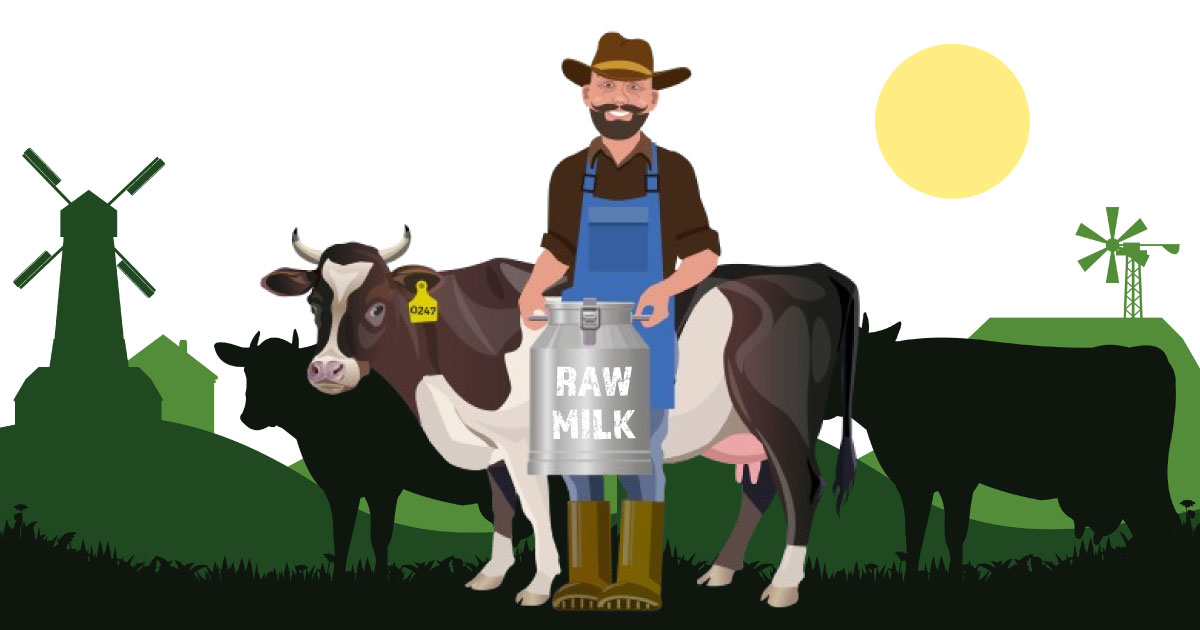
HEALTHY RAW MILK
Colorado Considers Allowing Sales of Raw Milk in Latest “Food Freedom” Legislation
Jennifer Brown, The Colorado Sun:
“Coloradans could buy raw milk at farms, farmers markets and roadside stands — but not grocery stores — under legislation aimed at giving consumers the power to choose their own food.
The “food freedom” bill would open up direct sales of unpasteurized milk, or milk that hasn’t been heated to kill bacteria, from farmers to customers, but would not impact a creative workaround that for decades has allowed people who want raw milk to get it by purchasing shares in a sheep, goat or cattle herd.
The only way to legally buy raw milk in this state is to sign a bill of sale to become part owner of a herd, a transaction that typically specifies that the dairy farmer will feed and milk the cows for you.
The herd-share arrangement is legal because farmers are allowed to consume their own products.
But under a proposal that got a 7-0 vote in its first Capitol hearing Thursday, dairy farmers could choose to instead open up raw milk sales at their farm, or drive their containers of milk to farmers markets and roadside stands and sell them to any customers who stop by.”
Read More: Colorado Considers Allowing Sales of Raw Milk in Latest “Food Freedom” Legislation

APPETITE FOR A CHANGE
Turning Down Food Aid for Children Is Shockingly Callous
By Charles M. Blow, The Seattle Times:
“Last week I read something that shocked me, even if it really shouldn’t have: Fifteen states — all but one run by Republican governors — skipped the deadline to apply for a new federally funded program that will provide $120 per child for groceries during the summer months to families of children who already qualify for free or reduced-price lunch at school.
Some of those states have some of the highest poverty rates in the country, including Mississippi, with the highest rate, and Louisiana, where I grew up, with the second highest. When Louisiana rejected the lunch program, a Democrat was still the governor; on Jan. 8, a Republican took over.
According to KFF, a nonprofit organization focused on health policy, seven of those states — Alabama, Florida, Georgia, Mississippi, South Carolina, Texas and Wyoming — are among those that have not fully extended Medicaid to the poor under the Affordable Care Act. Imagine withholding funding for food that would keep children healthy, while denying people medical care when they get sick.”
Read more: Turning Down Food Aid for Children Is Shockingly Callous
Read: SNAP to it, Congress — we need to address the obesity crisis now

LITTLE BYTES
Other Essential Reading and Videos for the Week
7 Ways to Detox Your Home (And Keep It Clean) Year ‘Round
Hundreds of Chemicals in Everyday Consumer Products May Increase Breast Cancer Risk
Biodegradable Native Garden Templates!
Can This Probiotic Fix Your Gut and Hair?
Israel Becomes First Country To Approve Sale of Lab-Cultured Meat
10 Sustainable Fabrics for Your Home
Ethanol Is Just Comically Inefficient Solar Energy
Breadfruit May Be the Key To Solving World Hunger, Study Finds
The Land Report 100: Who is America’s Largest Landowner?
Drugmakers Hiking Prices for More Than 700 Medications
Farmers in Romania, France and Germany Continue Road Convoy Protests
Big Agriculture and Big Oil Join Forces to Lobby for Clean Energy Credits




